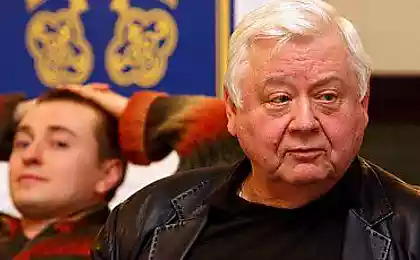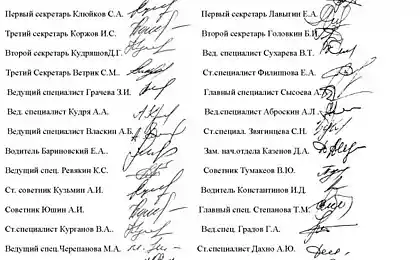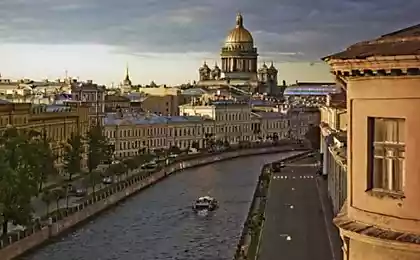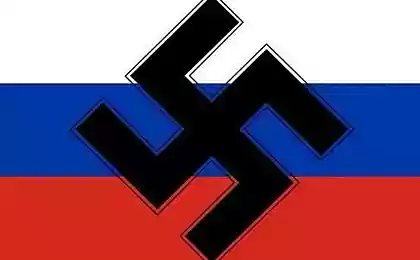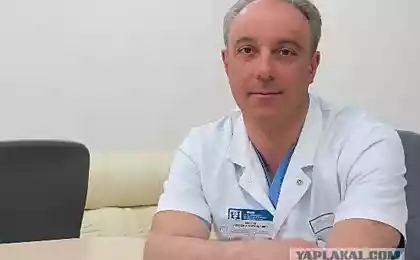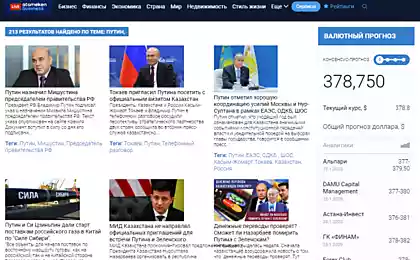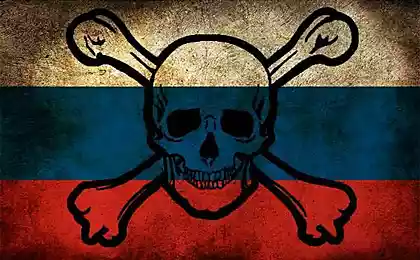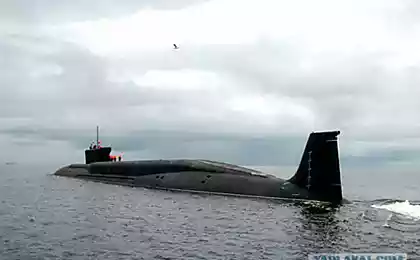1020
10 years of default in Russia, "Black Tuesday" could happen again?
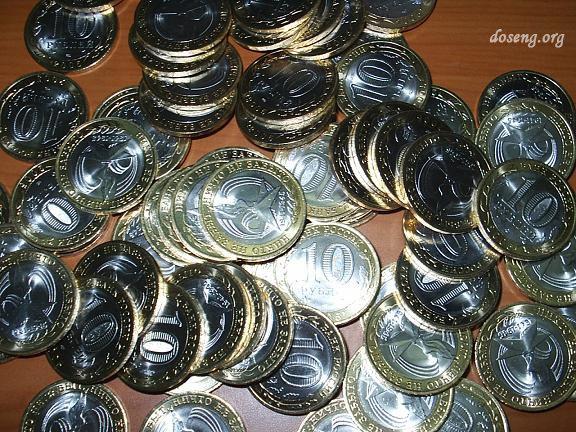
This year, Russia welcomes the 10th anniversary of the famous 1998 default. When the failure of the State to fulfill their obligations on bonds has led to the dramatic events in the whole of the economy, such as the devaluation of the national currency, the sharp rise in prices and an equally rapid decline in living standards. The collapse of large banks caused the population for a long time to lose confidence in the banking system, as well as to the financial market in general. Then the Russians learned to use foreign currency (mainly the US dollar) as a means of savings. Until now, meeting with people close to the financial market, the townsfolk asked: "What will happen to the dollar?".
The Russian crisis was predetermined by a number of factors. One of them was the economic crisis that erupted in 1997-1998. in Southeast Asia and has spread around the world. One consequence of the crisis was the sharp drop in oil prices, which was the key factor for the Russian economy. If in 1997. the average world oil price amounted to 18, $ 4. per barrel in December 1998. it fell to the level of 9, $ 6., who was at that time the lowest in 25 years.
In these circumstances, Russia has considerable foreign debt and small reserves of gold and foreign currency reserves. Then-President Boris Yeltsin, apparently realizing the inevitability of crisis, appoint the 24 April 1998. as prime minister of a young official from the Ministry of Fuel and Energy, Sergei Kiriyenko. Almost immediately after the August 17, 1998. the government was forced to declare a default, Kiriyenko was dismissed.
In May, the price of a barrel of oil fell to $ 8. Per barrel (average for 1998. Amounted to $ 12.).
To cover the budget expenditures, including payments of public debt, Russia is actively borrow. The main instruments of loans were short-term government bonds (T-bills), bonds (OFZ) (used to a lesser extent), Eurobonds issued by both the Russian Federation and regional and municipal authorities, as well as stabilization loans to the International Monetary Fund (IMF). Mechanism of attraction of borrowing short term at very attractive rates was established precursor Kiriyenko as prime minister Viktor Chernomyrdin. Repayment of debt on GKO carried out by new borrowing.
The lack of financial resources in the country was so acute that the government had placed T-bills at an annual of more than 100% per annum. Moreover, with increasing concerns that the Finance Ministry may not have funds to repay its obligations, speculators require an even greater level of profitability as a risk premium.
Minister of Finance at the time was Mikhail Zadornov, now holds the post of Chairman of the Board of VTB Group's retail division - VTB24. Questions government borrowings, including funds from the GKO oversaw the Finance Ministry Bella Zlatkis, now working in the post of deputy chairman of Sberbank of government. As Zadornov and B.Zlatkis passed through its press service, which declined to comment on any issues related to the crisis of 1998.
The current Finance Minister Alexei Kudrin, who worked in 1998. as the First Deputy Minister of Finance, partly blamed for the crisis on the International Monetary Fund (IMF), who at that time refused to grant Russian stabilization loan of $ 20 billion.
"If the IMF increased our reserve of 10 billion, or 20, then this collapse might not happen. The IMF said, will get 11 billion, but only a part - is now 4, 8, and if you behave yourself, then for a year may be even get. All analysts this week decided that we will not be enough. Central Bank got these funds went to market and sell the currency ", - the minister said. "I believe that the IMF is partly to blame - he said, - if you come to help, then help to avert a crisis. Critical stock should be sufficient ».
The main negotiator with the international financial institutions in 1998. Alexander Livshits was then worked as deputy head of the presidential administration (now - Director of International Projects of "Russian Aluminum"). The next day after the default - August 18, 1998. He resigned because he felt himself partly responsible for the crisis. Alexander Livshits was the only senior official who left his post on their own.
The consequences of the crisis in the form of mutual non-payments to banks and other organizations had to deal with the Central Bank of the Russian Federation. Nikolai Yegorov, currently heads the "National Depository Center", and then - deputy chairman, took direct part in this. According to him, the payment system of the country as of August 19, 1998. "I fell into a coma due to the insolvency of large banks." "In the course of overcoming the crisis of non-payments were used technological innovation associated with the conduct of multilateral clearing as part of the payment system of the Central Bank, which was a unique experience in international practice," - he said.
N.Egorov emphasized role in overcoming the crisis, first deputy chairman of the Central Bank Andrei Kozlov, who tragically died in September 2006. During the crisis, Kozlov was responsible for most of the operational processes at the central bank.
The head of the Central Bank in the crisis year was Sergei Dubinin. He was relieved of his duties immediately after the crisis began. Until recently, Sergei Dubinin Financial Director of RAO UES of Russia. After the elimination of the power July 1, 2008. he was not informed about his new job.
Withdrawal of funds by foreign investors, who set the tone in the Russian market, almost led to the collapse of the then fledgling Russian market. The RTS index in October 1998. It fell to 38, 53 points. In the same year, RTS introduced a system of payment "delivery versus payment". The current chairman of the RTS Stock Exchange Roman Goryunov said: "Of course, the crisis has had a serious impact on the development of the stock market. It significantly changed the configuration of forces, positions, market participants influenced the trading technology. For example, the technology with 100% depositing of assets appeared in Russia as a result of the 1998 crisis. Almost anywhere in the world this technology is not used precisely because our Western colleagues the situation of 1998. It seems impossible. " R.Goryunov believes that such experience and ability to survive in times of crisis "make our market more seasoned and strong." At that time, President Dmitry Ponomarev was Rs.
However, in the anniversary of default and also heard opinions that the crisis has not been overcome until the punished officials responsible for those events. In particular, since said deputy chairman of one of the oldest self-regulatory organizations of the stock market - PARTAD Peter Lanskov. "I think that the lessons from the events of 1998. not recovered, - he said, noting that the people responsible for the default will not be punished. " "The situation in which the results have not announced a default on a personal level, promotes a new generation of officials to commit such stupidity and meanness, as well as those who built the pyramids of T-bills," - he said.
There is a more optimistic point of view. Such ideas as the creation of savings funds, the accumulation of foreign exchange reserves, the release of the "oil and gas dependence" by diversifying now dominate the Russian economy due to the crisis of 1998. President of the Association of Russian Banks (Association "Russia"), a State Duma deputy Anatoly Aksakov believes that the actions taken by financial authorities of the country, there is no reason to expect something similar to the crisis of a decade ago.
"Airbag created, it's time to diversify the economy, to monetize the economy and make the economy was more protected from external shocks, for example, by falling oil prices", - said A. Aksakov. He also pointed out that if the Russian economy will be monetized, such as in China, the United States, the movement of capital, no one will notice, because the money supply will always be sufficient.
A. Aksakov emphasized that Russia's international reserves reached almost $ 600 billion., The Stabilization Fund - about 200 billion rubles. In addition, there is economic growth and budget surplus.
Finance Minister Alexei Kudrin assured that drew the proper conclusions from the default. "The investment rating has been restored completely, when I became Minister of Finance, and we began to build up reserves in order to have a safety margin. I remember these lessons, "- he said.
The minister admitted that the creation of a "margin of safety" has become one of the major challenges for the insurance from falling oil prices. "Now Russia is getting used to high oil prices and gradually reduces its margin of safety, increasing costs. On the other hand, and foreign exchange reserves are sufficient. The net outflow of 20 billion dollars for the first quarter of 2008, no one noticed, "- said Kudrin. He stressed that international experts are assigned the highest ratings of Russian banks at a time of global financial crisis.
Fedor Emelianenko, a living legend of MMA. Pride of Russia!
As we walked into the cafe ... (2 photos)



